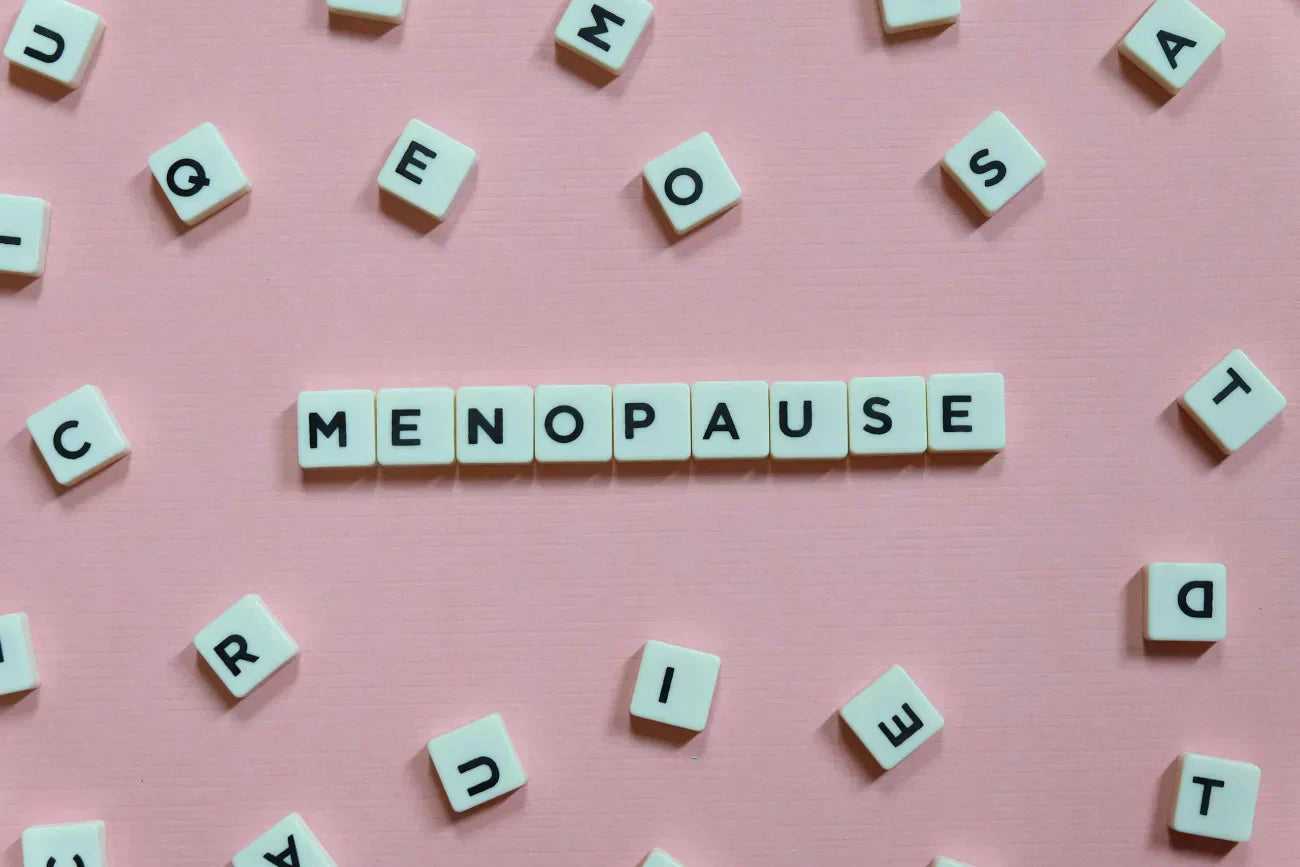We explore the types of contraceptives that are available and advantages and disadvantages of each, so you can choose the one that best suits your needs. Plus, we talk about the ideal ones to use in perimenopause to enjoy safe sex.
What are the types of contraceptives and why are they important?
Contraceptives are methods and products designed to prevent pregnancy. They vary in their use and effectiveness, but in general, they work by preventing the woman's egg from being fertilised by the man's sperm (1,2).
Different types of contraceptives are valuable tools in family planning and sexual health. They allow people to decide if and when they want to have children. In addition, some of them, specifically barrier contraceptives, provide protection against sexually transmitted infections (STIs) (1,2).
However, they can also have certain disadvantages and risks. Some produce temporary side effects such as headaches, nausea, and mood swings. Others may slightly increase the risk of heart and blood vessel disease (1). That's why it's essential to talk to a health professional before you start using any of them.
Here are some of the types of contraceptives available today (1,3):
Barrier methods
They physically block the passage of spermatozoa into the uterus; these include:
- The diaphragm.
- The contraceptive sponge.
- Male and female condoms.
They are easy to use and affordable. In addition to preventing pregnancy, condoms protect against sexually transmitted infections (STIs). They do not interfere with either male or female orgasm and can be used with water-based vaginal lubrication gels (1,3,4,5,6).
However, their effectiveness can be affected by incorrect use or breakage of the material and they must be used every time sexual intercourse takes place. The diaphragm and sponge are inserted into the vagina before intercourse and removed several hours after sex. Those with spermicides can be a bit irritating (1,3,4,5,6).
Types of hormone contraceptives
These contain synthetic hormones that prevent ovulation, thicken cervical mucus, and cause changes in the lining of the uterus. This makes it harder for sperm to reach the egg. Types include 1-hormone and ‘combined’ containing 2 hormones (7).
Progestogen-only contraceptives include (7):
- Injectable contraceptives.
- Intradermal implants.
- Progestogen-only pills.
- Hormonal intrauterine devices.
They have a longer duration of action, e.g. injections are given every 1-3 months and the implant every 3-5 years. This allows you to enjoy the benefits of sex without interruption to introduce a condom. They can also help reduce menstrual bleeding and be used during breastfeeding (7).
Disadvantages include that they do not protect against STIs. In addition, insertion and removal of the intradermal implant is costly (7).
The types of contraceptives used in combination are (7):
- Oral contraceptives, also known as "the pill".
- Vaginal rings.
- Contraceptive patches.
They help reduce menstrual bleeding and cramps, protect against certain cancers, and reduce acne. They also allow for uninterrupted foreplay with cuddling and aphrodisiac foods (7).
However, they do not protect against STIs or HIV. To ensure efficacy, pills need to be taken every day and patches must not be exposed to the sun. Additionally, these contraceptives are not recommended for smokers, people who are obese, or those who take certain medications such as anticonvulsants. And they may increase the risk of vein and artery disease (7).
Emergency contraception
These contraceptives are also known as the "morning-after pill". They are taken when there has been unprotected intercourse, or the contraceptive method used has failed. They must be taken within a specified period after sexual intercourse to be effective. In addition, they should not be used as a regular method of contraception.
Intrauterine Devices (IUDs)
IUDs are copper devices that are inserted into the uterus and create a toxic environment for sperm (8).
They are highly effective and can last between 5-10 years. However, insertion and removal must be performed by a medical professional. Some women may experience increased bleeding during menstruation (8).
Permanent methods
Surgical sterilisation is a permanent option for those who do not wish to have children in the future. The fallopian tubes are cut or tied to prevent the egg from joining with the sperm (9).
Types of contraceptives in perimenopause and postmenopause

Although fertility begins to decline after the age of 30, many women can become pregnant in their 40s and 50s. For this reason, contraception is recommended until (10,11):
- Turning 55 years old
- After one year without menstruation after the age of 50.
- After 2 years without menstruation when under 50 years of age.
The most recommended types of contraceptives for this group of women are (10,11):
- IUD, if it was inserted after the age of 45 and you have no problems with your uterus.
- Progestogen-only hormonal methods, if there is no suspicious bleeding.
- Combined hormonal contraceptives for women at low risk of heart disease and non-smokers.
- Surgical sterilisation.
- Emergency contraception.
- Barrier methods such as female and male condoms without spermicides. The condom's own lubricant helps women with vaginal dryness to have more pleasurable intercourse.
There are many types of contraceptives that can be used, but not all of them may be right for you. It is essential to talk to a professional before choosing a contraceptive method.
Bibliographical references
- MedLinePlus. Birth Control.
. 2022. Available from https://medlineplus.gov/birthcontrol.html
- Mayo Clinic. Birth Control.
. 2022. Available from https://www.mayoclinic.org/healthy-lifestyle/birth-control/in-depth/birth-control-options/art-20045571?p=1
- NHS. Wich method of contraception suits me?
. 2019. Available from https://www.nhs.uk/conditions/contraception/which-method-suits-me/
- NHS. Contraceptive diaphragm or cap
. 2020. Available from https://www.nhs.uk/conditions/contraception/contraceptive-diaphragm-or-cap/
- NHS. Condoms
. 2020. Available from https://www.nhs.uk/conditions/contraception/male-condoms/
- NHS. Female condoms
. 2021. Available from https://www.nhs.uk/conditions/contraception/female-condoms/
- Teal S, Edelman A. Contraception Selection, Effectiveness, and Adverse Effects: A Review. JAMA. 2021
326(24):2507–2518. Available from https://jamanetwork.com/journals/jama/fullarticle/2787541
- NHS. Intrauterine device.
. 2021. Available from https://www.nhs.uk/conditions/contraception/iud-coil/
- NHS. Female sterilisation.
. 2021. Available from https://www.nhs.uk/conditions/contraception/female-sterilisation/
- Schunmann, C. Clinical Guideline for: Perimenopausal Contraception.
. 2022. Available from file:///C:/Users/JH/Downloads/Perimenopausal-Contraception-G15-v6--792.pdf
- 2 British Menopause Societ. Contraception for the older woman.
. 2022. Available from https://www.womens-health-concern.org/wp-content/uploads/2022/12/04-WHC-FACTSHEET-ContraceptionForTheOlderWoman-NOV22-B.pdf
You May Also Like

JOIN US AND GET 10% OFF
Sign up to our newsletter to access free resources, advice and support.















